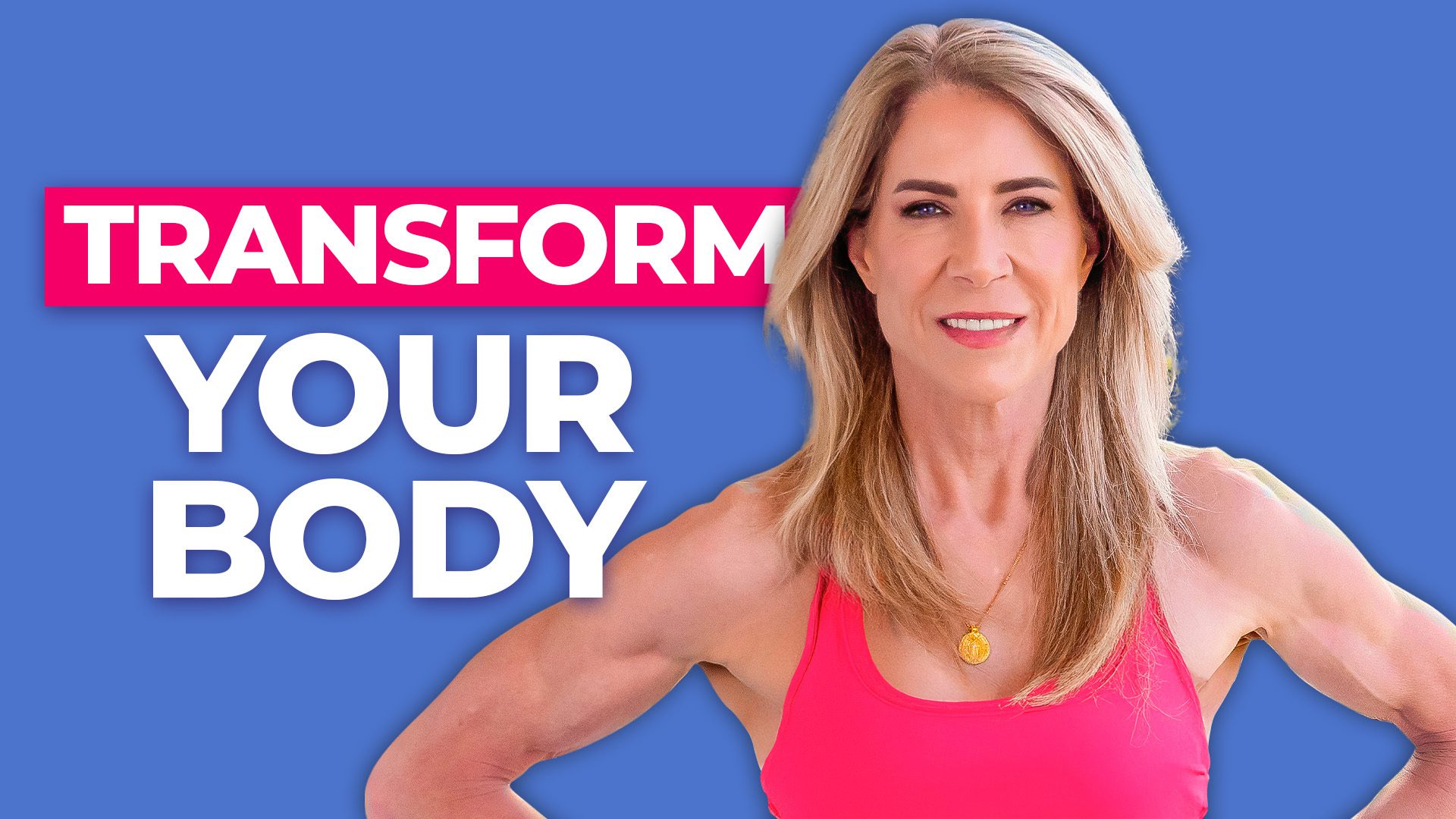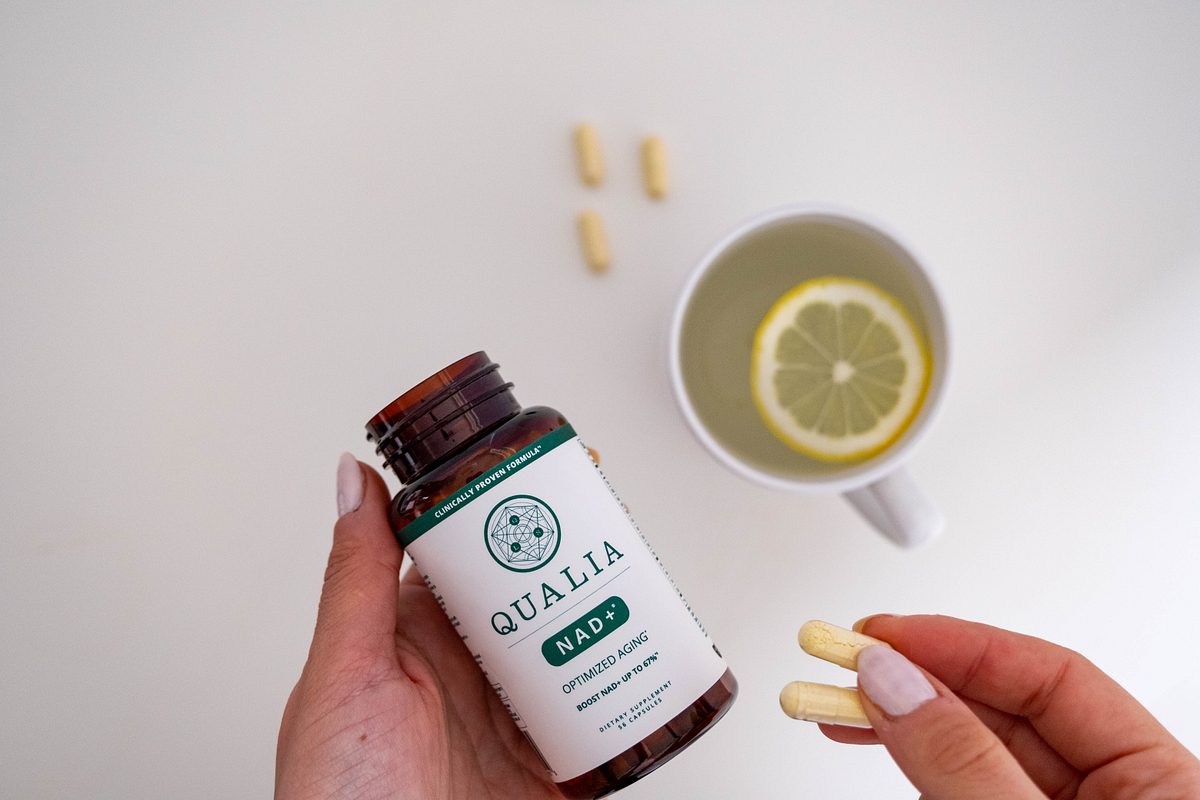There are many benefits to a high-protein diet, including muscle growth and repair, immune system health, steady energy, better exercise recovery, and improved physical performance.1, 2 However, even if you meet your daily protein goals, you might still make common mistakes that mean you’re not reaping the full benefits.
Here are five common mistakes people make when adopting a high-protein diet:
5 Common Protein Mistakes to Avoid
1. Over-Relying on Plant Protein
Adding plant-based proteins to your diet might sound healthy and good for the environment, but relying solely on them presents several obstacles. Most plant proteins are missing one or more of the nine essential amino acids (EAAs) that make up a complete protein, making it difficult to get all the nutrition you need from plant sources alone. These amino acids are crucial because your body can’t make them; you must get them from food or supplements.3
Another issue with plant proteins is that they can be harder to digest. Compounds like phytates and lectins, found in many plant foods, can interfere with how well your body absorbs and digests protein.4 Even if a plant food has high protein content, your body might not effectively utilize all of that protein.
Additionally, many people are sensitive or intolerant to common plant proteins like soy or gluten, which limits their options. Many plant proteins like beans and lentils have higher carbohydrate content as well, which can be problematic for those who prefer a low-carb diet.
Plant proteins can lack important nutrients your body needs, like creatine or CoQ10. Creatine helps produce energy and supports muscle function, keeping you active and strong. CoQ10 helps your cells produce energy and protects them from damage.5, 6 These nutrients are primarily found in animal foods.
You also need to eat more plant-based proteins to get the same amount of protein as from animal sources. For example, a 3-ounce chicken breast provides about 26 grams of complete protein and around 140 calories. To get 26 grams of protein from lentils, you’d need to eat more than one cup, which has about 18 grams of protein and 230 calories. Moreover, lentils aren’t a complete protein because they lack essential amino acids like cysteine and methionine.7
Given these limitations, you should get most of your protein from animal sources. However, if you are vegan or vegetarian, you’ll want to eat at least 40 grams of protein at every meal to meet your nutritional needs.
2. Not Focusing on Quality Protein Sources
Choosing high-quality sources like grass-fed, grass-finished beef, pastured poultry and eggs, and wild-caught seafood maximizes the benefits of your protein intake. The saying “you are what-you-eat ate” emphasizes the importance of the quality of the protein sources in your diet.
Conventional farming practices often involve feeding animals grains, soy, and other additives, which are not their natural diet. This can affect the nutritional quality of meat, dairy, and eggs. Additionally, these animals consume antibiotics to prevent illness and hormones to speed up growth. When you eat meat from these animals, traces of antibiotics and hormones can remain in your food.8
When it comes to animal protein, quality matters, and it’s important to read your food labels. Pastured poultry and eggs, wild-caught fish, and grass-fed beef offer superior nutrition in several ways:
- Wild-caught fish consume a natural diet, leading to higher levels of omega-3 fatty acids, which are essential for heart health and reducing inflammation. They also have a more natural balance of nutrients than farm-raised fish, which often eat processed feeds with additives and fillers.9
- Grass-fed beef is higher in omega-3s, other healthy fats, and antioxidants than grain-fed beef.10
- Pastured poultry and eggs contain higher levels of healthy fats, vitamins A and E, and antioxidants, offering better overall health benefits. They also tend to have lower levels of harmful contaminants like antibiotics and pesticides than conventionally raised counterparts.11
3. Not Breaking Down Protein Effectively
Getting enough protein is only part of the battle; you must also digest it well. If you experience bloating, gas, stomach discomfort, or prolonged fullness after eating protein-rich foods, your body may struggle to break down proteins efficiently. Symptoms like constipation, diarrhea, unexplained fatigue, and bad breath or foul-smelling gas can be signs of poor protein digestion.12
If your body isn’t getting enough protein due to poor digestion or absorption, you might experience muscle loss, weakness, and fatigue. Your immune system can weaken, making you more prone to infections. Poor protein absorption can also slow wound healing and cause problems with your skin, hair, and nails.13
Several factors can impair your body’s ability to digest proteins effectively, including:
- Age: As you age, your body produces less hydrochloric acid. This strong acid in your stomach helps break down food and activates pepsin, the enzyme responsible for protein digestion. Lower amounts of HCl can lead to less efficient protein breakdown. As you get older, your digestive system slows down. This makes food take longer to digest, which can cause discomfort and incomplete digestion.14, 15
- Stress: Chronic stress can significantly impact digestion by diverting blood flow from your digestive system. This reduction in blood flow can decrease the production of digestive enzymes, including proteases that break down proteins.16
Use a high-quality digestive enzyme supplement to improve protein digestion. Look for supplements that contain betaine HCl, which helps increase stomach acid levels and activates pepsin for more effective protein digestion.
Protein First Enzymes contains a powerful formula designed to ensure you’re breaking down protein effectively, especially if you’re on a higher-protein diet. This proprietary blend includes digestive enzymes that break down protein, carbs, fat, and betaine HCl to enhance protein digestion. Additionally, it contains enzymes that aid in breaking down problematic ingredients like dairy and gluten.* Order Protein First Enzymes here.
4. Neglecting Bumper Meals
Overall, you’ll want to aim for 100+ grams of protein daily. Meeting that quota matters, but getting protein at the right times is also critical. Your day’s most important meals are your “bumper” meals: breakfast and dinner.
Your body uses protein reserves for various functions while you sleep, including repairing tissues, building muscles, and supporting your immune system. Since your body can’t store protein, starting your day with a high-protein breakfast that has 30-50 grams of protein can replenish these depleted stores and kickstart your metabolism.
A high-protein breakfast provides a steady supply of amino acids for muscle maintenance and energy. It also keeps you feeling fuller for longer, curbing mid-morning cravings. Additionally, protein helps stabilize blood-sugar levels, preventing the spikes and crashes that can lead to energy dips throughout the day.17, 18
Your last meal of the day is just as important. A high-protein dinner can improve sleep quality, maintain stable blood-sugar levels, prevent muscle breakdown overnight, and support your body’s repair processes.19-21
5. Not Managing Your Overall Macro Intake
Even the healthiest foods can become unhealthy if you overeat them. Managing your overall macronutrient intake is essential when you increase your protein consumption. While you want to optimize protein, you’ll also want to balance your overall calorie intake (including carbohydrates and fats) to avoid overeating. Eating by the plate ensures balanced macronutrient intake, but precise tracking is also valuable.
I recommend using food-tracking apps like Cronometer, which lets you accurately enter personal details such as age, weight, height, and activity level to calculate your daily macronutrient needs. Regularly logging your meals and beverages, along with using a food scale, can help you monitor and adjust your intake of proteins, fats, and carbohydrates. This ensures you stay within your targeted macro ratios, aligning your diet with your health and fitness goals.
Use the app’s reporting features to analyze your macronutrient intake over time. This analysis helps identify patterns affecting your energy levels, weight, and overall health. Ensure your total caloric intake matches your goals, whether those goals include weight loss, maintaining a healthy weight, and/ or muscle gain. If you’re significantly increasing your protein, reassess your caloric needs to support this change. Regularly review and adjust your macro intake based on your goals and how you feel, ensuring you maintain the right balance and achieve optimal health outcomes.
Optimize Your Protein Intake Correctly To Get Its Many Benefits
Protein is essential for muscle building, repair, and maintenance. This mighty macronutrient supports metabolism, boosts energy levels, and helps maintain a healthy weight by promoting satiety and reducing cravings. Simply put, your overall health and vitality can take a nosedive without protein.
My 7-Day Eat Protein First Challenge helps you avoid common protein mistakes and ensures you get optimal protein at every meal. It includes a protein calculator to determine your ideal protein intake, a comprehensive guide filled with tips and tricks, and a protein-first meal plan. You have everything you need to transition to a higher-protein diet and enjoy its benefits.
Get your 7-Day Eat Protein First Challenge for free here.
References:
- Carbone JW, Pasiakos SM. Dietary Protein and Muscle Mass: Translating Science to Application and Health Benefit. Nutrients. 2019 May 22;11(5):1136. doi: 10.3390/nu11051136. PMID: 31121843; PMCID: PMC6566799.
- Healthline: 10 Science-Backed Reasons to Eat More Protein
- Healthline: Animal vs. Plant Protein — What’s the Difference?
- Healthline: How to Reduce Antinutrients in Foods
- Cleveland Clinic: Creatine: What It Does, Benefits, Supplements & Safety
- ScienceDirect: Coenzyme Q10 – an overview
- Hertzler SR, Lieblein-Boff JC, Weiler M, Allgeier C. Plant Proteins: Assessing Their Nutritional Quality and Effects on Health and Physical Function. Nutrients. 2020 Nov 30;12(12):3704. doi: 10.3390/nu12123704. PMID: 33266120; PMCID: PMC7760812.
- WebMD: Grass-Fed Beef and Grain-Fed Beef: Is It Good for You?
- Colorado State University: Wild caught vs. farm raised seafood
- Daley CA, Abbott A, Doyle PS, Nader GA, Larson S. A review of fatty acid profiles and antioxidant content in grass-fed and grain-fed beef. Nutr J. 2010 Mar 10;9:10. doi: 10.1186/1475-2891-9-10. PMID: 20219103; PMCID: PMC2846864.
- American Pastured Poultry Producers Association: The Nutrition of Pasture-Raised Chicken and Meats
- Pudasainee P, Anjum F. Protein Intolerance. [Updated 2023 Sep 4]. In: StatPearls [Internet]. Treasure Island (FL): StatPearls Publishing; 2024 Jan-. Available from: https://www.ncbi.nlm.nih.gov/books/NBK562306/
- Health: 8 Protein Deficiency Symptoms
- Healthline: Hypochlorhydria (Low Stomach Acid)
- MedicineNet: Does Your Digestive System Slow Down as You Get Older?
- Everyday Health: How Stress Affects Digestion
- Healthline: How Protein at Breakfast Can Help You Lose Weight
- Gannon MC, Nuttall FQ, Saeed A, Jordan K, Hoover H. An increase in dietary protein improves the blood glucose response in persons with type 2 diabetes. Am J Clin Nutr. 2003 Oct;78(4):734-41. doi: 10.1093/ajcn/78.4.734. PMID: 14522731.
- Healthline: Why Do We Sleep? What Happens During Sleep?
- Science: Want to sleep better? Bulk up on protein, animal study suggests
- Snijders T, Trommelen J, Kouw IWK, Holwerda AM, Verdijk LB, van Loon LJC. The Impact of Pre-sleep Protein Ingestion on the Skeletal Muscle Adaptive Response to Exercise in Humans: An Update. Front Nutr. 2019 Mar 6;6:17. doi: 10.3389/fnut.2019.00017. PMID: 30895177; PMCID: PMC6415027.
*These statements have not been evaluated by the Food & Drug Administration. Products mentioned are not intended to diagnose, treat, cure, or prevent any disease. The views in this blog by JJ Virgin should never be used as a substitute for professional medical advice. Please work with a healthcare practitioner concerning any medical problem or concern.






